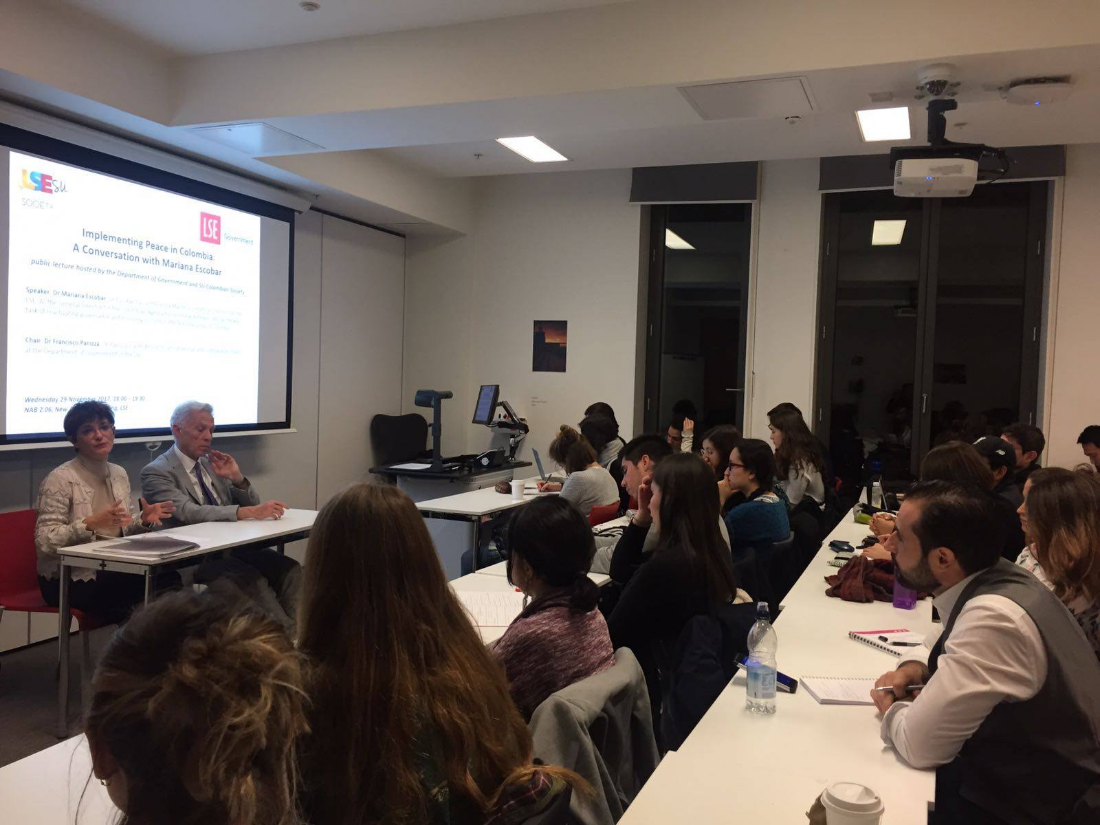MSc students Chengxue Yang, Kuranda Morgan, Minjee Kim, Qihua Huang and Wishchapol Techawiwattanarkarn, use the case of the electronic voting system in Brazil to analyse whether technology can improve accountability. This article is a summary of their recent group research project for Policy, Bureaucracy and Development (DV450).

In October 2018, Brazilians will go to the polls to once again elect a new president following a series of political turmoil that has rocked the country, included the impeachment of President Dilma Roussef in 2016 and recorded low approval ratings of Brazilian politicians. More than 150 million citizens across the country are expected to vote through electronic voting machines; a popular system which has been used for more than twenty years. While electronic voting systems have been viewed as transparent and user-friendly due to their ability to increase valid votes among illiterate Brazilians, one can ask what it means to have a more inclusive participatory democracy. What are the consequences of electronic voting systems on government policies? Most importantly, do such technologies serve as a panacea for democratic challenges within the Brazilian context?
Brazil turned to electronic voting in 1998 in order to counter the negative effects of a paper-voting system. The manual nature of vote-counting left election outcomes vulnerable to manipulation during the counting process. Such systems also inherently required basic reading and writing abilities, which created barriers for the illiterate populations (25.4% in 1991), resulting in significant amounts of invalid or blank votes. Through a gradual implementation of the electronic voting system, a nationwide adoption was achieved by the year of 2002.
In a 2015 paper, Fujiwara sought to unravel the effects that ICT in the form of electronic voting technology had on policy making and policy outcomes within Brazil. Electronic voting helped Brazil’s poor and illiterate voters overcome these barriers, by providing easy to use, picture-based election selection options that allowed voters to cast their decision regardless of their ability to read or write-in the names of their favourite candidates. The effect that electronic voting had on the enfranchisement of Brazilian voters, especially Brazil’s poorest, and their ability to participate in the political process was clear: electronic voting helped increase the valid votes in Brazil by 12.3 percent. Yet beyond the increased enfranchisement of Brazilian voters, Fujiwara linked the effects that this had on government performance.
The introduction of an electronic voting system led not only to the increased enfranchisement of Brazilian voters, but to improved public service delivery, resulting in better welfare outcomes. The shift from paper voting to electronic voting resulted in a 34.3% increase in state expenditure on health care. Moreover, it led to more gradual social impacts, such as a 19% increase in prenatal visits to uneducated mothers by health care providers and a 6.8% decline in incidence of low-weight births.
In the case of Brazil, electronic voting effectively led to improvements in pro-poor policy-making and public health outcomes, especially for poor Brazilians. Yet the degree to which ICT interventions like electronic voting increase the accountability of Brazil’s government to its citizens on the whole is highly dependent on circumstances.
The relative success of ICT interventions in improving government accountability is contingent on several key factors. Policymakers need to be able to delegate public service delivery responsibilities to bureaucrats and public service delivery providers in order to carry out the services promised through electoral processes. The state also has to be capable of carrying out, implementing, and monitoring effective ICT programs. In the case of Brazil, electronic voting was made possible due to Brazil’s autonomous TSE (Superior Electoral Court). A government and its representatives need to be willing to put forward effective ICT programs and trust that the systems serve to better democratic functions. Yet even when a government is able to successfully meet these requisites and implement an effective ICT program, ICT alone does not ensure that a government will remain accountable to its citizens.
For example, despite the introduction of electronic voting, vote-buying is still endemic to Brazilian elections. Evidence from Gamermann and Antunes (2017) demonstrates that politicians remain “chrimatocratic” instead of democratic. That is, the possibility of candidates to be elected is determined by money, and politicians have committed fraud in financial declarations in order to secure their elections.
While technology itself is a tool embedded within a society and can serve to improve bureaucratic functions, it is not a universal solution to issues within the principal-agent relationship, in which ‘agent’s act on behalf of the delegated needs of the ‘principal’. Brazilian voters as ‘principals’ were unable to hold elected bureaucrats that served as their agents accountable even with the implementation of electronic voting. Whether through errors in the technological security of voting machines, or government officials’ desire for reelection, actors within bureaucratic systems can find ways of working around the issues that ICT seeks to solve in order to pursue personal priorities. When we look to ICT interventions to help improve government functions, it is important to consider ICT as one piece of a broader bureaucratic puzzle, in which ICT serves as a complement to pre-existing functions and conditions in a given context.
Chengxue Yang is an MSc Development Studies student. Her current research interests include the the role of agriculture development in poverty reduction, and also the global impact of foreign aid from emerging donors.
Kuranda Morgan is currently pursuing an MSc in Social Policy Research. Her research interests include social inclusion, the political economy of development, and evidence to policy processes.
Minjee Kim is an MSc Development Studies student. Her current research interests include the role of emerging donors in developing countries and their impact on development, impact evaluation and big data.
Qihua Huang is an MSc Development Studies student. Her current research interests include the impact of international or national institutions’ implications on national development and information and technology for development.
Wishchapol Techawiwattanarkarn (Daniel) is currently pursuing an MSc in International Migration and Public Policy. His interest spans across migration, economic and social development, international relations, and public policy. His research draws particular attention to regional migration governance in South-East Asia and Latin America.
The views expressed in this post are those of the author and in no way reflect those of the International Development LSE blog or the London School of Economics and Political Science.





